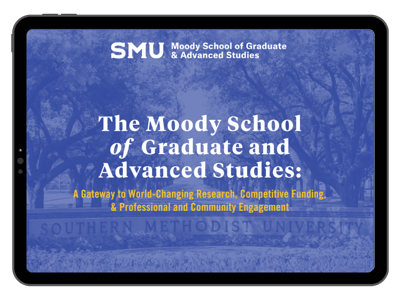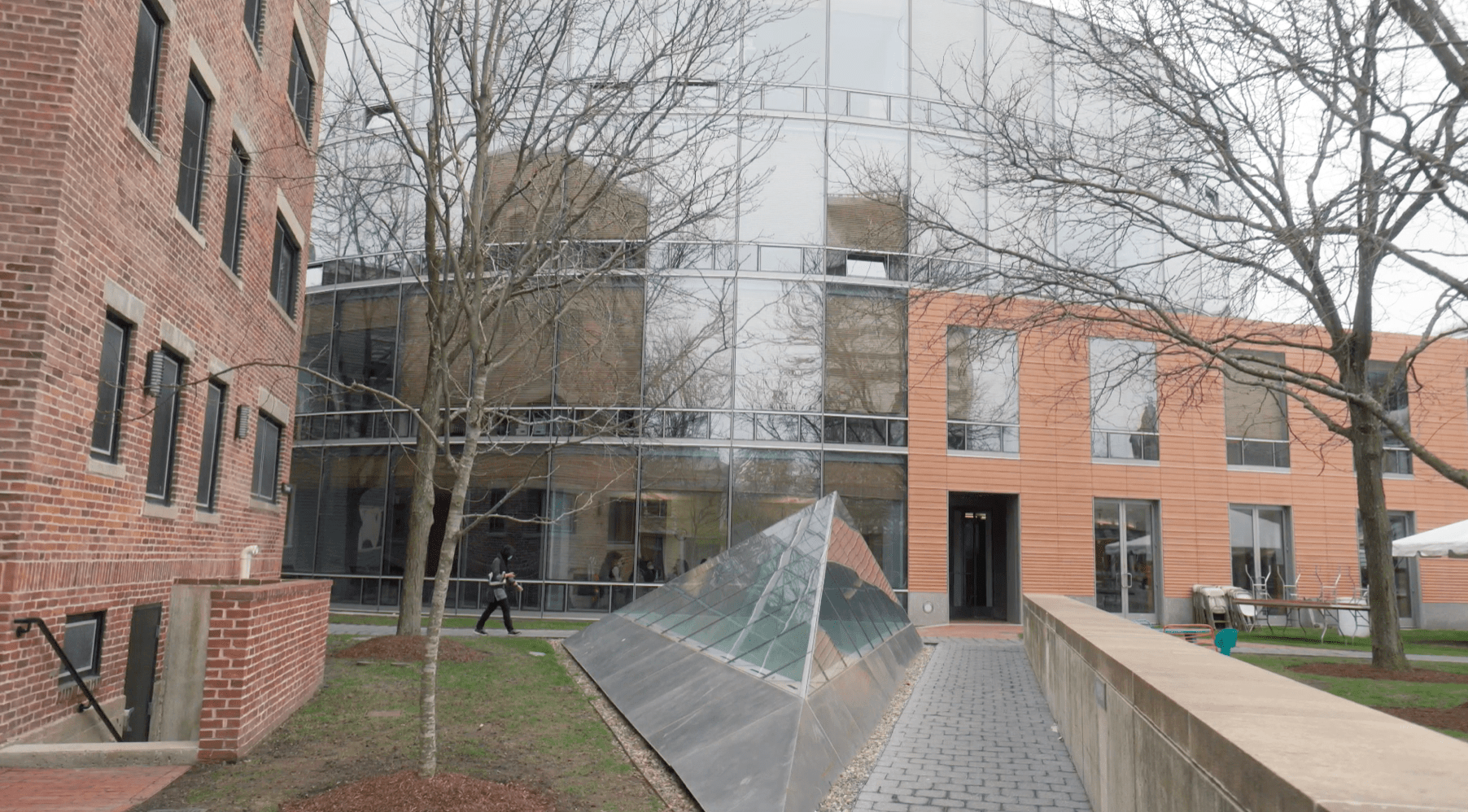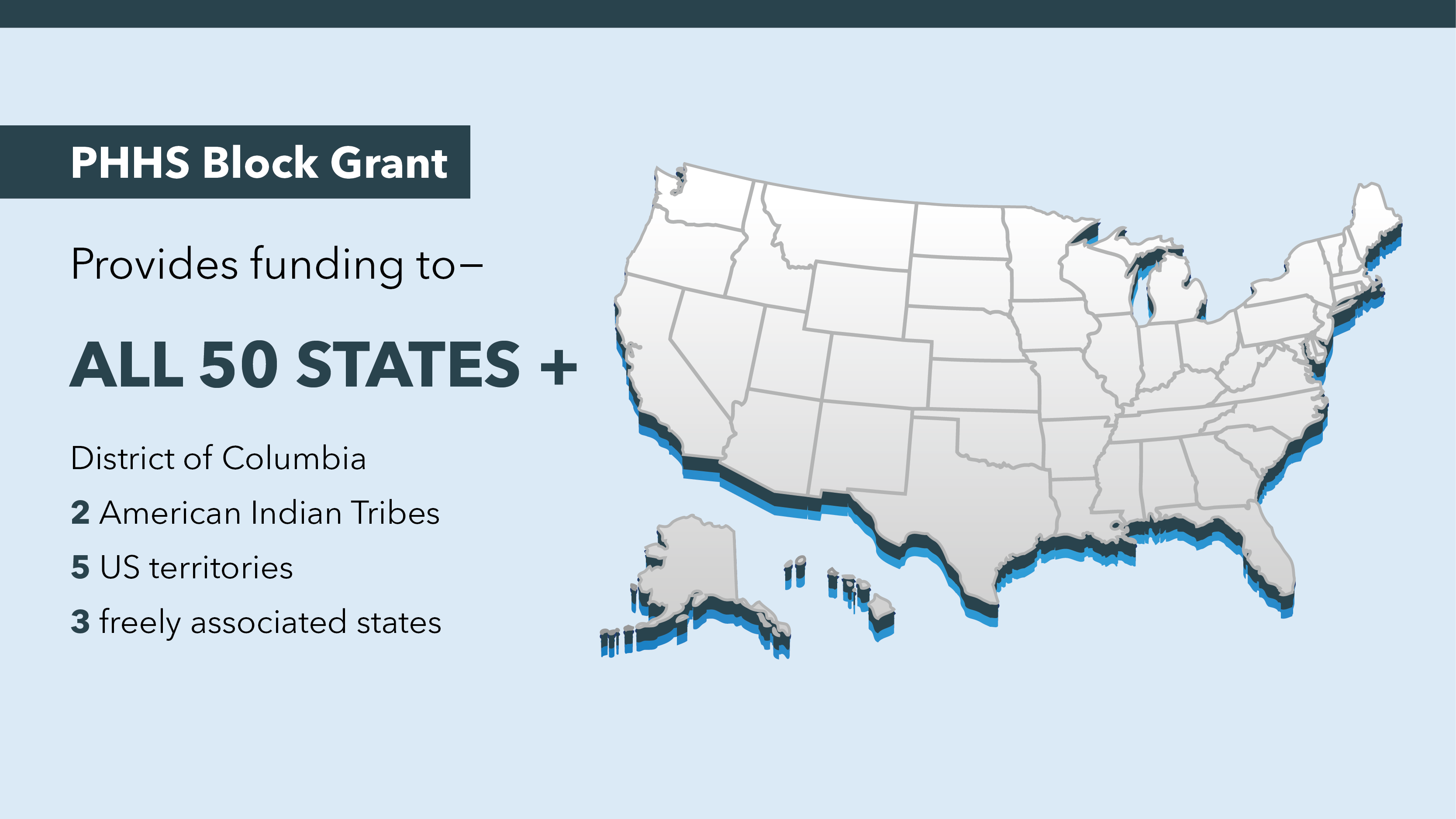- Skip to main content
- Prospective Students
- Current Students
- Apply Apply
- Follow Us


How to Find PhD Scholarships and Grants

Financing your PhD studies can be challenging, but it's essential to your academic journey. Scholarships and grants can ease this burden, although finding and securing them may seem daunting.
Navigating your financial prospects can present a challenge, but scholarships and grants are there as available resources. In this blog, we will explain the opportunities to fund your PhD. We’ll also provide practical advice to help you find the right funding options for your PhD. Our guidance aims to give you a strong foundation for success.
Finding Doctoral Scholarships and Grants
Finding funding for graduate studies can be stressful, but scholarships and grants are available if you know where to look.
- University Funding: Universities often offer scholarships and research grants to PhD students. For instance, the SMU provides various funding options for doctoral students through the Moody School for Graduate and Advanced Studies.
- Professional Associations: Depending on your field of study, grants are often available from professional associations. Have a look at your specific discipline’s association website or reach out to them directly.
- Government and Non-Government Organizations: Both government and non-government organizations offer grants to encourage research in various fields. Explore resources like Grant.gov and The National Science Foundation.
- Industry Partners: Companies often work with universities to fund research in their industry, supporting specific projects or areas of study.
- International Scholarships: International students can find PhD scholarships in the USA, like Fulbright and DAAD .
Essential Scholarship Application Tips
- Start Early: Keep in mind that securing funding takes time, so don’t wait to start your search. The application deadline is often way before the program application deadline.
- Be Thorough and Organized: Keeping track of deadlines, application components and other details can be overwhelming. Create a system that helps you keep everything organized and in one place.
- Tailor Your Applications: Tailor each application to the specific sponsor to maximize its appeal. Remember to show why you’re a perfect fit for their funding.
- Leverage Your Network: Don't hesitate to use your academic network. Professors, colleagues, and alumni can be valuable resources for scholarship and grant opportunities.
Grants and Scholarships for PhD Students vs. Other Forms of Aid
Initially, most students think of scholarships as a lifeline for PhD funding , but it's surprisingly uncommon for students to fund their PhD with scholarships alone. Can you get a scholarship for a PhD? Absolutely. But scholarships for doctoral students can be quite competitive.
In reality, most PhD students utilize a variety of funding sources. PhD programs commonly offer doctoral assistantships and fellowships, which are typically more widely available. Some students even explore additional routes like postgraduate loans, employer support, crowdfunding, and research council grants.
Knowing the ins and outs of each type of funding can help you make a decision that best suits your academic and financial needs.
Scholarships
Scholarships, financial awards you don't need to repay, often reward merit or specific factors like demographics or career aspirations.
- Doesn't require repayment
- No obligation to perform services
Potential drawbacks:
- High competition
- May need exceptional qualifications
Grants operate much like scholarships in that they do not need to be repaid. They are frequently awarded based on need, although some may also take into consideration academic merit or field of study.
Benefits:
- Doesn’t require repayment
- Can offset a significant amount of educational expenses
Potential drawbacks:
- Competition can be fierce
- May have to meet eligibility criteria or conditions
Assistantships & Fellowships
Assistantships and fellowships are also common ways to pay for a PhD. Assistantships involve providing services to the university by undertaking teaching or research roles, usually in exchange for a stipend and tuition waiver. Fellowships, like scholarships, are merit-based and don't require repayment or work in return. Fellowships usually offer generous resources and are specific to the student's field of study.
- Provide hands-on experience in teaching or research (assistantship)
- Accompanied by generous funding and resources (fellowship)
- Fellowships often provide greater freedom for research compared to assistantships
- Time commitment can impact personal studies (mainly assistantships)
- High competition may require exceptional qualifications or research proposals
While fellowships, assistantships, grants and scholarships for PhD programs aim to reduce the financial burden, they’re understandably different in their commitments, benefits, and application process.
Discover PhD Funding at SMU
Finding and securing the right funding for your PhD is crucial in shaping a stress-free and productive doctoral journey. Remember, scholarships and grants, while beneficial, are just pieces of a wider resource puzzle that may include assistantships or fellowships.
These funding options are aimed to ease your financial commitments, so explore opportunities for each, align them with your academic goals, and pave your way towards a rewarding PhD experience .
For more helpful resources or information about SMU's Moody School of Graduate and Advanced Studies, contact us — we're here to help you on your academic journey!

learn more about
How SMU Is Investing in Graduate Students: Get to Know the Moody School of Graduate and Advanced Studies

Request more
Information.
Complete the form to reach out to us for more information
Published On
More articles, recommended articles for you, 3 tips for graduate students to consider when choosing a faculty mentor.
You’ve started studying in a great graduate program and are ready to dive into your research, make...
How to Build Your Graduate School Community
The thought of starting graduate school can be intimidating. Maybe you’re finishing up your...
Moody Means: A Stronger Professional Network and Graduate Community
Step into the future of graduate education with Moody Hall, a revolutionary building that brings...
Browse articles by topic
Subscribe to.
An official website of the United States government
Here's how you know
Official websites use .gov A .gov website belongs to an official government organization in the United States.
Secure .gov websites use HTTPS. A lock ( Lock Locked padlock ) or https:// means you've safely connected to the .gov website. Share sensitive information only on official, secure websites.
Alert: Due to extended maintenance, NSF.gov will be unavailable from 11:00 PM on 5/31 to 2:00 AM on 6/1. Most other NSF systems, including Research.gov, will be unavailable from 11:00 PM on 5/31 to 1:00 PM on 6/1. We apologize for any inconvenience.
Funding at NSF
- Getting Started
- Search for Funding
- Search Funded Projects (Awards)
- For Early-Career Researchers
- For Postdoctoral Researchers
- For Graduate Students
- For Undergraduates
- For Entrepreneurs
- For Industry
- NSF Initiatives
- Proposal Budget
- Senior/Key Personnel Documents
- Data Management and Sharing Plan
- Research Involving Live Vertebrate Animals
- Research Involving Human Subjects
- Submitting Your Proposal
- How We Make Funding Decisions
- Search Award Abstracts
- NSF by the Numbers
- Honorary Awards
- FAQ Related to PAPPG
- NSF Policy Office
- Safe and Inclusive Work Environments
- Research Security
- Research.gov
The U.S. National Science Foundation offers hundreds of funding opportunities — including grants, cooperative agreements and fellowships — that support research and education across science and engineering.
Learn how to apply for NSF funding by visiting the links below.
Finding the right funding opportunity
Learn about NSF's funding priorities and how to find a funding opportunity that's right for you.
Preparing your proposal
Learn about the pieces that make up a proposal and how to prepare a proposal for NSF.
Submitting your proposal
Learn how to submit a proposal to NSF using one of our online systems.
How we make funding decisions
Learn about NSF's merit review process, which ensures the proposals NSF receives are reviewed in a fair, competitive, transparent and in-depth manner.
NSF 101 answers common questions asked by those interested in applying for NSF funding.
Research approaches we encourage
Learn about interdisciplinary research, convergence research and transdisciplinary research.
Newest funding opportunities
Nsf scholarships in science, technology, engineering, and mathematics program (s-stem) scholarship supplements for advanced technological education (ate) recipients, hispanic serving institutions: equitable transformation in stem education, national stem teacher corps pilot program, planning proposals for large-scale projects in computer and information science and engineering (cise) in eligible epscor jurisdictions.

Updates --> Prepare for Grant Application and Review Changes Impacting Due Dates on or After January 25, 2025 NIH Guide Notices • Websites • Webinars Learn about the latest updates to the peer review framework of most RPG applications and how these changes will impact existing and new funding opportunities. --> Learn More
- How to Apply
Guidance on preparing and submitting a grant application to NIH. Learn about required registrations, submission options, formatting rules, field-by-field form instructions, and submission policies.
Find Grant Funding
NIH offers funding for many types of grants, contracts, and even programs that help repay loans for researchers. Learn about these programs, NIH funding strategies, and more.
Funded Research (RePORT)
Access reports, data, and analyses of NIH research activities, including information on NIH expenditures and the results of NIH-supported research.
Navigate the NIH grants process.
- Grants Process Overview
- Get Started
- Application Referral and Review
- Pre-Award and Post-Award Processes
- Forms Directory
Learn about obligations of your grant award.
- NIH Grants Policy Statement
- Notices of Policy Changes
- Compliance and Oversight
- Select Policy Topics
- Other Support
Find key resources just for you.
- Researchers
- Research Administrators
- Small Businesses
- Foreign Applicants
- Media and the Public
This page last updated on: March 20, 2024
- Bookmark & Share
- E-mail Updates
- Help Downloading Files
- Privacy Notice
- Accessibility
- National Institutes of Health (NIH), 9000 Rockville Pike, Bethesda, Maryland 20892
- NIH... Turning Discovery Into Health
Find Education Scholarships for PhD Students
Every little bit helps, get a head start funding your doctoral degree using the U.S. News scholarship database. Apply for money now.
- Clear Filters
Elevar Scholars Program
California State University, Fullerton
What You'll Need
- Application Form
- Recommendation
- Demonstrated Financial Need
- Merit-based Aid
Description
Funded by the CSU and Giles T. Brown Endowment for Graduate Studies through the Cal State Fullerton Philanthropic Foundation, this program seeks to increase the diversity of students completing graduate degree programs, encourage further study in doctoral programs and promote consideration of university faculty careers. If provides fellowships to economically disadvantaged CSUF students who have overcome educational disadvantages or hardships. The fellowships are intended to minimize students’ debt burden, allowing them to complete their program more quickly and commence doctoral study.
Fletcher Jones Fellowship
University of California, Irvine
- Need-based Aid
The Fletcher Jones Fellowship is a highly prestigious award, made available through funding from the Fletcher Jones Foundation. It is competitively awarded to an outstanding doctoral student who has advanced to candidacy and demonstrates financial need. The award of a one-year fellowship of approximately $22,290, to be used as a stipend, is intended to assist with doctoral degree completion.
Chancellor's Club Fellowship
Chancellor’s Club Fellowships recognize our most academically superior doctoral and MFA students — those who exhibit outstanding promise as scholars, researchers, and public leaders. Nominated students must be first-generation college students, with neither parent having received a four-year degree. Nominations are made by Associate Deans for scholars in their respective schools.
Miguel Velez Scholarship
The Miguel Velez Scholarship provides financial support to graduate students who demonstrate outstanding past academic achievement as well as future promise, have financial need, and are citizens and residents of a Latin American country. Preference is given to citizens of Colombia.
James Harvey Scholar
The James Harvey Scholar award provides financial support to graduate students who demonstrate outstanding past academic achievement as well as future promise, have financial need, and are completing a publishable thesis or dissertation on homosexuality or the life or works of James Harvey.
Otto W. Shaler Scholarship
The Otto W. Shaler Scholarship provides financial support to international graduate students who have financial need, and who demonstrate outstanding past academic achievement as well as future promise. Each school may submit no more than two applications for this award.
Brython Davis Fellowship
Overview: The Brython Davis Fellowship provides financial support to students who demonstrate outstanding past academic achievement as well as future promise, have financial need, are U.S. citizens, and are the child of a service member or veteran of the U.S. Navy or Marine Corps.
La Verne Noyes Fellowship
The La Verne Noyes Fellowship provides financial support to graduate students who demonstrate outstanding past academic achievement as well as future promise, have financial need, are U.S. citizens, and are descendants of World War I U.S. Army or Navy veterans.
Barbara Bell Blake Nursing Scholarship
Purdue University, Northwest
Need Based: Please note: This specialty scholarship requires a separate application. Even if you've already applied for a PNW admissions scholarship, you need to submit a separate application to be eligible.
Intel SWE Scholarship (Graduate)
Society of Women Engineers (SWE)
SWE Scholarships support those who identify as a female/woman and are pursuing an ABET-accredited bachelor or graduate student program in preparation for careers in engineering, engineering technology and computer science in the United States. US Citizenship required. Minimum GPA: 3.0. Class: Graduate (Masters, Doctoral) Major: CprE, CS, EE.
- Communications
- Computer Science
- Criminal Justice
- Environmental Management
- Forensic Psychology
- Healthcare Admin
- Human Resources
- Project Management
- Social work
- Special Education
- Sports Management
- Supply Chain Management
- Adult Education
- Business Intelligence
- Early Childhood Education
- Educational Technology
- Homeland Security
- Information Systems Security
- Information Technology
- International Business
- Management Information Systems
- Nonprofit Management
- School Counseling
- Academic Publishing Guide
- Building a Graduate School Resume or CV
- Choosing Between a Thesis or Non-thesis Master's Degree
- Expert Guide to Studying Abroad
- FAQ: Online Master's Degrees
- Grad School Guide Book
- Graduate School for Students with Disabilities
- Green Graduate Degrees
- How to Be a Successful Grad Student
- How to Choose the Right Graduate Program
- How to Get a Master's Degree in an Unrelated Field
- How to Transfer College Credits in Grad School
- How to Write a Winning Personal Statement
- Inside Graduate Admissions
- Ivy League Grad Schools
- Master's Degrees for Veterans
- Master's Degree for Women
- Mental Health in Grad School
- Progressive LGBTQ Graduate Degrees
- Should You Apply for a Graduate School Assistantship?
- Surviving Grad School with a Family
- Taking a Gap Year Before Grad School
- Women in STEM Graduate Resources
- Writing a Successful Statement of Purpose
- Alternative Ways to Pay for School
- The Best Part-Time Jobs During Grad School
- Company Funded Graduate School
- FAFSA For Grad Students
- Financial Aid Resources
- Graduate Student Loans
- Paying for Your Master's Degree
- Paying Off Student Loans
- Paying for Your PhD
- Fellowship Opportunities
- LGBTQ Scholarships
- MBA Scholarships
- Scholarship Resources
- Scholarships for Veterans
- Scholarships for Women
- Crushing the GRE Guidebook
- GMAT Guidebook
- Guide to the LSAT
- MCAT Prep for Medical School
- Study Guide: Exam Resources
- TOEFL Prep for Non-Native English Speakers
- Financial Aid Grants for Graduate School Students
Grants for Graduate School Students
Tips for securing funds for advanced degrees.
For those who want to advance in their careers, graduate school can be a good investment to help them meet their goals. However, this investment can be extremely costly, so students may rely on different types of financial aid to help them pay for their advanced education. Grants are an excellent form of financial aid because, like scholarships, they do not have to be paid back. This guide discusses the places where students can find grants and how they can increase their chances of winning them.
FAQ: Understanding Grants for Graduate School
Students who are looking for funding for their graduate studies may have many questions about how to receive grants. The following are the answers to some of those questions.
What is a grant for graduate school?
Grants are a form of financial aid that do not have to be repaid and are often provided to students based on their financial need. In some cases, the organization providing the grant may also consider other factors, like academic performance, when awarding these funds.
Who is eligible to receive a grant in grad school?
Generally, students must be enrolled in an accredited college or university in order to be eligible to receive a grant. Also, depending on the award, there may be other eligibility requirements, such as minimum grade point average, type of degree program, and research goals.
What’s the difference between grants and fellowships?
Grants are generally offered to students based on their financial need, while fellowships are often based on academic achievement and research.
What is the application process like?
The application process for grants is similar to that of scholarships. In some cases, as with some governmental awards, students can be considered by filling out a Free Application for Federal Student Aid. In other cases, students are required to fill out a separate application to receive a grant, and in addition to being asked for financial information, they may be required to submit a statement about their academic achievements and goals.
What are the different types of grants for grad students?
Grants can be provided by public and private sources, such as government agencies, professional organizations, corporations, and the schools that students attend. Some grants are provided based on the students’ demographic or the field of study they’re pursuing.
- Federal. The federal government offer grants to graduate students that are based on financial need, including the Teacher Education Assistance for College and Higher Education (TEACH) Grant , Fulbright Grants , and Iraq and Afghanistan Service Grants .
- State. Just as students can receive grants from the federal government to fund their graduate studies, they may also be able to receive grants from the state they live in. For example, the Colorado Graduate Grant provides up to $5,000 for students who demonstrate financial need, and the Ohio Department of Natural Resources offers $2,000 grants for earth science graduate students to conduct research.
- School specific. Schools want to attract the best students to their graduate programs, so they may offer grants to help those who show promise pay for their education. For example, the State University Grant Program is available to graduate students attending schools in the California State University system, and Michigan State University provides funding for master’s and doctoral fine arts students through its University Fellowship Programs .
- Organization and corporate grants. Professional and non-profit organizations, as well as private companies, offer grants to help students get the advanced education they need to enter their professions—which goes a long way toward building a strong workforce.
- By demographic. Demographics may also play a role in the grants that graduate students can receive. Some grants are provided to members of a certain race, for example, to help bridge the gap of underrepresentation in a specific field.
- By field. Colleges and universities, as well as professional organizations, may offer grants based on what program the student is enrolled in.
Recommended Online Programs
Students can find grants in a variety of untapped places. There are community-based organizations that provide scholarship support in various interest areas (e.g., business) and there are small trusts/foundations often administered by community foundations and local banks. In addition, many national organizations provide scholarship and grant support for students who meet their defined criteria. Students should monitor philanthropy websites and take the time to do Internet searches. A number of professional organizations also sponsor writing/research competitions that often come with scholarships or cash prizes.
Patricia E. Salkin, Provost and CAO of Graduate and Professional Divisions at Touro College
18 Grants for Graduate School
Grants for graduate school can come from a variety of sources, so students should be aware of all of their options in order to win as many awards as they can. The following are some examples of these grants, and the qualifications students are expected to have in order to win them.
Federal Grants for Graduate Students
U.s. department of education: teacher education assistance for college and higher education (teach) grant.
Award: Up to $4,000
Deadline: Late October
Graduate students who are studying to become teachers can receive this grant in exchange for committing to work at schools in low-income areas for a minimum of four years. Students are eligible to receive this award if they are preparing to teach in numerous subject areas, such as mathematics, foreign language, science, special education, and English. In addition, applicants must have at least a 3.25 grade point average or score above the 75th percentile on college admissions exams.
U.S. Department of Education: Iraq and Afghanistan Service Grant
Award: Up to $6,095
Deadline: Varies
This grant is available to students whose parent or guardian died during military service in Afghanistan or Iraq after September 11, 2001. Applicants must be under the age of 24 or enrolled in college when their parent or guardian died.
U.S. Department of State: Fulbright Grants
Award: Varies
Fulbright Grants are designed to promote international studies and research projects. Some of the countries that students may use the grant to study in include Australia, Germany, Uganda, Indonesia, and Portugal.
Fellowships for Graduate Students
Dolores zohrab liebmann fund: dolores zohrab liebmann fellowships.
Award: Full tuition plus $18,000 stipend
Deadline: Early January
Based on academic performance and financial need, these fellowships are available to students enrolled in graduate programs in the natural sciences, humanities, or social sciences. Students must attend one of the organization’s designated colleges or universities in order to receive this annual award. Fellowships are renewable for up to three years.
Institute for Humane Studies: Humane Studies Fellowship
Award: Up to $15,000
Deadline: Mid-February
Designed to support teaching and scholarship in the humanities and social sciences, this fellowship is available to students enrolled in doctoral programs on a full-time basis. In order to qualify, students should be studying areas such as sociology, history, political science, economics, and law. Applicants should describe the research they intend to conduct and explain how it will advance classical liberal ideas.
National Academies of Sciences, Engineering, and Medicine: Ford Foundation Fellowship Programs
The National Academies of Sciences, Engineering, and Medicine provides predoctoral, dissertation, and postdoctoral fellowships through the Ford Foundation Fellowship Programs. These awards are available to students in a variety of academic disciplines, including archaeology, history, earth sciences, computer science, and art and theater history. In addition, students must demonstrate high academic performance and the ability to contribute to the field as a teacher or researcher.
Organization & Corporate Grants for Graduate Students
American cancer society: doctoral training grants in oncology social work.
Award: $20,000
Deadline: Mid-October
This grant is available to doctoral students studying social work who want to conduct oncology research. This is a two-year award that may be renewable.
Geological Society of America: Graduate Student Research Grants
Award: Up to $5,000
Deadline: Early February
The Geological Society of America offers grants for students in geological sciences master’s and doctoral programs who are conducting research. Applicants must be a member of the organization in order to receive the award.
University Film and Video Association: Carole Fielding Student Grant
Award: Up to $1,000
Deadline: Mid-December
Graduate students enrolled in film and televisual arts programs are eligible to receive this grant. Applicants should provide an in-depth description of their research project with information on proposed budget, how the project will advance the field, and how they plan to present their findings. Students must be sponsored by a professor who is a member of the University Film and Video Association.
Grants for Graduate Minorities
American anthropological association: aaa minority dissertation fellowship program.
Award: $10,000
Deadline: Early March
This grant is available for doctoral anthropology students. Applicants must be a member of an underrepresented racial group, such as Pacific Islander, African American, Latino, and Asian American. In addition, students must demonstrate academic excellence.
American Society of Criminology: Ruth D. Peterson Fellowship for Racial and Ethnic Diversity
Award: $6,000
The Ruth D. Peterson Fellowship for Racial and Ethnic Diversity is available to minority students--such as Asians, Latinos, and African Americans--enrolled in a doctoral criminal justice or criminology program. Students must demonstrate acceptance in a criminology or criminal justice Ph.D. program, as well as financial need.
Wisconsin Higher Educational Aids Board: Indian Student Assistance Grant
Award: Up to $1,100
This grant is available to Wisconsin graduate students who are at least 25 percent Native American. In order to receive this award, students must be enrolled at the University of Wisconsin, independent colleges and universities, proprietary institutions, or tribal colleges in the state.
Grad School Grants for Women
American association of university women: career development grants.
Award: Up to $12,000
Deadline: Mid-November
This grant is designed to help women get the education they need to advance in their careers. Eligibility requirements include enrollment in an advanced degree program and financial need.
American Physical Society: M. Hildred Blewett Fellowship
Award: Up to $45,000
Deadline: Early June
The American Physical Society provides this fellowship to female physics students who are returning to their studies after a hiatus. In order to be eligible, students must have completed some work toward their physics doctoral degree.
Zonta International Foundation: Amelia Earhart Fellowship
This award is designed to encourage women to pursue the aerospace sciences or aerospace engineering fields. Students should be enrolled in an aerospace studies doctoral program to receive this award.
Field-Specific Grants for Grad School
American psychological association: grants in aid for students.
Deadline: Late September
The American Psychology-Law Society, which is a division of the American Psychological Association, offers grants to graduate students who want to conduct research on psycholegal issues. Applicants must submit information describing their project and its significance.
National Science Foundation: Graduate Research Fellowship Program
Award: $34,000
This fellowship is for students enrolled in research-based science, technology, engineering, and mathematics graduate degree programs. Applicants must be enrolled in an eligible degree program in order to be considered for the award.
Sustainable Agriculture Research and Education Program: Graduate Student Grant Program
This grant is provided for master’s and doctoral students who want to do research related to sustainable agriculture issues for their degree program. Students who receive funding may work on their projects for up to 36 months.
When students seek funding (that will not need to be repaid) for graduate studies, they typically look at two sources: graduate assistantships and fellowships. However, graduate assistantships tend to be the most plentiful funding source. Students can be awarded one of three types of competitive graduate assistantships: graduate teaching assistantships, graduate research assistantships, and graduate administrative assistantships. These assistantships pay students' tuition and/or a monthly stipend.
Kimberly L. Douglass, Associate Dean at Middle Tennessee State University College of Graduate Studies
7 Expert Tips to Landing Grad School Grants
Once students have found the graduate school grants they are eligible for, they need to present themselves in the best way in order to win them. The following tips can help students increase their chances of winning these awards.
Search organizations that cater to a profession.
Pay attention to writing., explain a low grade point average., tailor information., incorporate history., build a relationship with faculty members., always look for funding opportunities., additional resources to help pay for grad school.
Graduate students can never have too much information about funding their education. The following are additional resources that students can use to help them find financial aid.
- Understanding Financial Aid for Graduate School
- Top Scholarships for Graduate Students
- Paying for Your Master’s Degree
College Grants How to Find Grants Merit Based Grants Merit Grant Application Need Based Grants Doctoral Low Income Returning Students Women
Minority Students
Minorities African American Native American Latino Asian Disabilities Mothers
Federal Programs Pell Grant FSEOG G.I. Bill Military
Searching for Grants Search By Subject
Field of Study
Art Beauty School Engineering Environmental Studies Journalism Law Math Nursing Physical Therapy Social Work Teaching Vocational
- / Financial Aid
- / Grants
- / Doctoral
Finish Your PhD or Doctorate with Money from Grants
Just say "no" to student loans.
By the time you reach your Doctoral degree you will have seriously tapped your savings. In combination with other forms of financial aid make student Doctoral grants a part of your education strategy. Consider your main concerns when shopping for extra grant funding:
- Do you have large amounts of research left to conduct?
- Do you have any travel plans for which you need funding?
- Do you need straight-up tuition assistance?
- Do you qualify as an ethnic minority studying in an under-represented area?
These questions will help you identify specific areas in which you might seek additional grant funds. Research and travel grants are fairly common for students pursuing their doctorate degree. While these grants may not meet all of your financial needs they can help to defray costs and get you back to focusing on your studies.
Let's take some time to explore the best sources or grant programs targeted at students working toward their PhD and Doctorate degree.
Government Sources for Doctoral Student Grant Money
Don't assume that government sources only provide free college money to undergraduates. Federal and state governments are providers of various types of grants and fellowships that could fit your needs. You must be thorough and motivated to succeed in routing out all the funding opportunities. A few examples to get your juices flowing, include:
The U.S. Department of Education and the Federal government offer financial aid programs that go beyond the needs of undergraduates. Federal and state governments provide various types of grants and fellowships designed to benefit graduate and post graduate degree seekers. If you've come this far in your higher education now is the time to re-double your motivation and search out all the funding opportunities available to you.
Here are a couple of examples of grant programs that are designed to benefit graduate and post – graduate students:
- The Fulbright Grant program is one of the largest and most respected educational exchange programs in the world. Since it's inception in 1946 the Fulbright program has encouraged and developed exceptional students from around the world by giving them the resources to study or conduct research abroad. Fulbright grants are offered in a variety of disciplines including humanities and the arts, social sciences, mathematics and the natural and physical sciences.
- The Federal TEACH or Teacher Education Assistance for College and Higher Education grant program is open to graduate students pursuing their doctorate in education studies. In exchange for a term of service in a high need low income elementary or secondary school applicants are awarded grant monies to help them complete there doctorate programs.
The U.S. Government's Student Aid on the Web site is a good tool to use when searching for Federal grants for you graduate studies. Many Federal agencies such as the EPA, the Justice Department and the National Science Foundation offer grants to qualifying students to enable them to complete their graduate and doctorate studies.
Doctoral Grant Money from Your University
Many universities offer grant and fellowships for students enrolled in their doctoral or PhD programs. These programs provide much needed financial aid in return for research and/or teaching assistance. Many of these fellowships are decided on the basis of gender, ethnicity and financial need. Be sure to check with your university for research grants and fellowships in your field of study for which you may be qualified.
Private Sources
Professional associations in the sciences, healthcare, education and many more fields are prime sources for student aid. Many of these aid packages are based on area of study, ethnic background or gender. Besides tuition assistance for professional members and student members, keep in mind that these are also excellent sources for research grants and travel grants.
- The Geological Society of America awards annual research grants to students pursuing their masters or doctoral studied in the geological science fields. The program is open to students attending accredited universities in the United States, Canada and Mexico.
- The Woodrow Wilson National Fellowship Foundation annually administers the Doctoral Dissertation Research Grant in Women's Studies to qualifying female students attending an accredited U.S. University.
- The John Simon Guggenheim Memorial Foundation sponsors the Guggenheim Fellowships to Assist Research and Artistic Creation which are designed to encourage graduate studies in all aspects of the humanities and liberal arts.
These few examples of private sourced grants and fellowships available to graduate students should give a good indication of the diversity of fields and disciplines for which financial aid is available. A little research and detective work will uncover a vast array of privately funded graduate and post graduate fellowships and grants available to students studying in a diverse number of disciplines.
- U.S. Department of Health & Human Services

- Virtual Tour
- Staff Directory
- En Español
You are here
Grants & funding.
The National Institutes of Health is the largest public funder of biomedical research in the world. In fiscal year 2022, NIH invested most of its $45 billion appropriations in research seeking to enhance life, and to reduce illness and disability. NIH-funded research has led to breakthroughs and new treatments helping people live longer, healthier lives, and building the research foundation that drives discovery.
three-scientists-goggles-test-tube.jpg

Grants Home Page
NIH’s central resource for grants and funding information.
lab-glassware-with-colorful-liquid-square.jpg

Find Funding
NIH offers funding for many types of grants, contracts, and even programs that help repay loans for researchers.
calendar-page-square.jpg

Grant applications and associated documents (e.g., reference letters) are due by 5:00 PM local time of application organization on the specified due date.
submit-key-red-square.jpg

How to Apply
Instructions for submitting a grant application to NIH and other Public Health Service agencies.

female-researcher-in-lab-square.jpg

About Grants
An orientation to NIH funding, grant programs, how the grants process works, and how to apply.
binder-with-papers-on-office-desk-square.jpg

Policy & Compliance
By accepting a grant award, recipients agree to comply with the requirements in the NIH Grants Policy Statement unless the notice of award states otherwise.
blog-key-blue-square.jpg

Grants News/Blog
News, updates, and blog posts on NIH extramural grant policies, processes, events, and resources.
scientist-flipping-through-report-square.jpg

Explore opportunities at NIH for research and development contract funding.
smiling-female-researcher-square.jpg

Loan Repayment
The NIH Loan Repayment Programs repay up to $50,000 annually of a researcher’s qualified educational debt in return for a commitment to engage in NIH mission-relevant research.
Connect with Us
- More Social Media from NIH
For Prospective Graduate Students

The Department of Government. Calling all researchers, leaders, and changemakers.
When you join Harvard University’s Department of Government, you become part of a highly-recognized intellectual community of scholars, researchers, visionaries, leaders, and changemakers. Our strength in teaching and research in all fields of political science is reflected in both our faculty and our curriculum.
Harvard University’s Department of Government is a world leader in the study and scholarship in political science. Our programs of study include:
- American Government
- Comparative Politics
- International Relations
- Political Methodology/Formal Theory
- Political Philosophy and Its History
Our innovative curriculum reflects a diverse range of fields and methodologies. The vibrant graduate student body receives hands-on training by conducting supervised dissertation research and working with our faculty in research projects and undergraduate teaching.
Here, scholars have access to unparalleled resources. They have the opportunity to define and formulate their own research questions and to apply a variety of research methodologies.
- Graduate students research is greatly facilitated by the exceptional resources offered by the Department of Government and the University.
- Harvard has the largest university library in the world .
- Harvard expansive network of research centers and top international studies centers bring together scholars and researchers from around the globe.
Scholars can also take advantage of Harvard’s generous financial aid program. In addition, there is just no match to the energy and excitement that accompanies student life in the Cambridge/Boston area.
Harvard University does not discriminate against applicants or students on the basis of race, color, national origin, ancestry or any other protected classificiation.
PhD Requirements
Candidates for the PhD in Government are expected to complete the required coursework during their first two years of graduate study and take the General Examination at the end of the second year. A typical schedule consists of these two years, followed by three or four years of work on a dissertation, combined with supervised teaching.
Admissions
The graduate program of the Department of Government is designed to train students for careers in university teaching and advanced research in political science. The department does not offer an independent master’s program, the master of arts in political science being reserved for PhD candidates on the way to their final degrees. Click here to visit the Graduate School of Arts and Science’s page on admission to the Government Department to learn more about the application process.
Application for Admission
The application for admissions is available at http://www.gsas.harvard.edu/apply .
The application fee is $105. Applicants can determine eligibility for a fee waiver by completing a series of questions in the Application Fee section of the application. Once these questions have been answered, the application system will provide an immediate response regarding fee waiver eligibility.
Application information and instructions are available at www.gsas.harvard.edu . Applicants with admissions questions should call 617-496-6100 from 2-5pm EST or email [email protected] . Applicants with financial aid questions should call 617-495-5396 or email [email protected] .
Financial Aid and Fellowship Opportunities
Financial aid is administered under the direction of the Graduate School of Arts and Sciences (GSAS) . The department intends that all graduate students should have support adequate to enable them to complete their studies while enrolled full-time. Prospective students apply for financial aid at the same time they apply for admission and are also required to submit a Statement of Financial Resources. The financial aid package for government students typically includes tuition and fees plus a stipend and a summer research grant for the first two years; tuition and fees plus guaranteed teaching fellowships and a summer research grant for years three and four; tuition and fees in year five; and tuition and fees plus a stipend for the completion year.
In addition to funding from the Graduate School of Arts and Sciences , graduate students are encouraged to apply for outside fellowships and grants. Please visit the website of the GSAS Fellowships Office for more information.

The NIH MD/PhD Partnership Training Program aims to assist NIH MD/PhD students by providing funding guidance and support. Most NIH institutes have MSTP-funded training slots that serve as the primary source of funding for MD/PhD students at the NIH. However, these slots and the accompanying funded are limited. As a result, each institute slot is given to an exemplary MD/PhD student who is completing their dissertation research with a principal investigator in that institute’s intramural research program.
Medical Scientist Training Programs
The Medical Scientist Training Program (MSTP) was developed by the National Institute of General Medical Sciences (NIGMS) to financially support the development of future physician-scientists. This program encourages students with outstanding credentials and potential to dedicate themselves to biomedical research and academic medicine careers.
Students conducting their dissertation research at the NIH may attend any medical school; however, only those accepted to a U.S. medical school’s MSTP are eligible to receive an NIH institute’s MSTP-funded slot for the medical school phase of training.
Since funding from the NIH MD/PhD Partnership Training Program is provided by an individual NIH institutes as a supplement to a medical school’s NIGMS MSTP training grant, it can only be used at MSTP-funded programs . Not all MSTP-funded programs fully participate, however. For more information about current participating medical schools, please contact the Director of the MD/PhD Partnership Training Program.
If you do not currently attend a medical school that participates with this program, or a medical school that does not have an MSTP grant, we encourage you to consider other available funding opportunities .
More information about MSTP Funding is available here .


Grant Review And Allocation Committee (GRAC)
Welcome to the grant review & allocation committee (grac) homepage. grac offers grants to fulfill graduate student needs and provide professional or community-based opportunities., upcoming grac events.

ALL AVAILABLE GRANTS
Find below a list of all available grants click on their respective images to explore more..

Professional Grants
The Professional Grant provides financial assistance for costs associated with academic and professional development to graduate students Click on the Image to Explore More

Travel Grants
The Travel Grant provides funding for graduate students to present Purdue research at academic conferences. Click on the Image to Explore More

Our Graduate Student Organization Grant Allocation (GSOGA) Award provides funding to Graduate Student Organizations to support their activities, events, and programs Click on the Image to Explore More

Symposium Grants
Our Symposium grant assists Graduate Student Organizations (GSOs) in hosting academic symposiums that will offer graduate students unique professional and academic development opportunities. Click on the Image to Explore More

Equipment Fund Grants
The Graduate Student Equipment Fund (GSEF) provides funding for graduate student groups to make improvements to the spaces provided to them. Click on the Image to Explore More

MHAW Partnership Grants
The PGSG Mental Health Partnership is a grant program to sponsor or co-sponsor Mental Health Awareness Events hosted by student organizations Click on the Image to Explore More

PGSG Strategic Partnership
PGSG offers co-sponsorship funding for graduate student focused events that complement the mission of PGSG: Life, Career, Community.
Grant Review & Allocation Committee
Meet the pgsg grac team members of ay 2023-24.

Team Chair Email: [email protected] Ali is a fourth-year Ph.D. student in Educational Psychology and research methodology. Her research centers around motivation and identity development with a social justice lens. Specifically, her work focuses on preservice teachers' professional identity development. She received Bachelor’s degrees in Psychology, Child Youth, and Family studies. She enjoys water-related activities such as standup paddleboarding (with her dog) and kayaking in her free time. As part of her role, the GRAC Chair is responsible for managing reviews and allocating funds for various graduate student grants, including Travel, Professional, Symposium, and GSOGA grants. She also oversees the Childcare Grant, Strategic Partnership, Mental Health Partnership, and Graduate Student Equipment funds. In addition, she ensures the GRAC web pages are kept up to date with the latest policies, deadlines, and forms. She also facilitates the recruitment and training of grant reviewers and is responsible for dividing the monthly budget and tracking the overall allocation of funds, as well as GRAC activities

Rajsri Raghunath
GSOGA and Symposium Vice-Chair Email: [email protected] [email protected] Rajsri is the '23-'24 GSOGA and Symposium Vice-Chair. She is a 2nd-year PhD student in the Food Science Department. Her research interests are focused on cereals and cereal fibers, specifically how they are degraded by human gut bacteria. In addition to her research, Rajsri pursues her interests in reading, painting and listening to music.

Rohan Dekate
Professional Grant Vice-Chair Email: [email protected] Rohan is pursuing his Master's in Mechanical Engineering with a concentration in Computational Science & Engineering. His research interest is to develop novel Deep Learning techniques to solve real-world engineering problems in the mobility and energy domain. He likes to explore new places, and the food they have to offer, and in his free time, he plays badminton. Chances are that you'll find him at CoRec! He’d like to utilize his 4+ years of industry experience to help graduate students develop their professional skills and get started on their dream careers.

Meredith Ziliak
Travel Grant Vice-Chair Email: [email protected] Meredith is the current Vice Chair of Travel Grants and joined GRAC in the fall of 2021. She’s a third-year PhD student in interdisciplinary life sciences studying auditory neuroscience with a focus in computation. She understands the importance of grants and scholarships for sharing knowledge and research, and is committed to helping Purdue’s graduate students learn about how GRAC can assist funding their travel. She works hard to ensure students of all disciplines have a fair application process and chance at funding. Outside of GRAC, Meredith is often in the lab, but in her scant free time, she loves swing dancing with Purdue Night Train, playing card/board/puzzle games, and exploring cool places around town. Meredith is excited to hear about the exciting research happening on campus and is looking forward to working with you!
Fall 2023 top reviewers
Shuangtng li.

Shuangtng Li is a PhD student in the Educational Psychology & Research Methodology department within the College of Education. His research focuses on understanding the influence of informal learning activities on middle and high school students’ science achievement. He is passionate about self-improvement in his personal life. In his spare time, he enjoys listening to music and spending time with his family. His favorite sport is basketball!
Palak Manchanda

Palak Manchanda is pursuing her PhD in Chemistry with a concentration in analytical chemistry and neuroimmunology, currently in her 5th year. Her research interest is to utilize analytical techniques to uncover the dysfunctional cell states and associated mechanisms in the context of Alzheimer’s disease and Traumatic Brain injury. She loves to cook, and also try food from different places. In her free time, she enjoys painting and redecorating her place. She recently did a Co-op and is applying for jobs and would love to help graduate students navigate through getting internships and managing school alongside and overall help with the development of professional skills.
Fangfang Mo

Fangfang Mo is a second-year PhD student in the College of Education with a concentration in Gifted, Creative, and Talented Studies. Her passion for the realm of gifted education was nurtured during my tenure as a Chinese language teacher in Singapore. In that role, she had the privilege of closely collaborating with gifted students and gaining insight into their distinct academic and socio-emotional requirements. She noticed that certain gifted individuals were vulnerable due to a deficiency in tailored educational support. This experience ignited her drive to delve deeper into the needs of gifted students and to actively search for avenues to empower them to realize their full potential and make significant contributions to society.
Morgan Chaney

Morgan Chaney Dept is a 5th-year PhD candidate co-advised by Esteban Fernandez-Juricic and Jeffrey Lucas in the Biological Sciences department. She is studying the impacts of laser bird deterrents on the physiology and behavior of European starlings (an invasive bird species). She has been a member of PGSG and the GRAC team for two years. In her free time, she likes to play video games and spend quality time with her loved ones.
PGSG Grants Deadline
Past grac grants recipients.
- Education and learning
- Student finance
Doctoral Loan
A Postgraduate Doctoral Loan can help with course fees and living costs while you study a postgraduate doctoral course, such as a PhD.
There’s different funding if you normally live in Wales . Moving somewhere to study does not count as normally living there.
You can also get extra support if you have a disability .
You will not be eligible for an Adult Dependants’ Grant, a Childcare Grant or Parents’ Learning Allowance from Student Finance if you’re studying a doctoral course.
When you can apply
You can now apply for funding for the 2023 to 2024 academic year.
When you repay your loan
You’ll have to start repaying your loan when your income is over a certain amount (the ‘threshold’ amount).
You’ll be charged interest from the day you get the first payment.
Related content
Is this page useful.
- Yes this page is useful
- No this page is not useful
Help us improve GOV.UK
Don’t include personal or financial information like your National Insurance number or credit card details.
To help us improve GOV.UK, we’d like to know more about your visit today. Please fill in this survey (opens in a new tab) .
Thank you for visiting nature.com. You are using a browser version with limited support for CSS. To obtain the best experience, we recommend you use a more up to date browser (or turn off compatibility mode in Internet Explorer). In the meantime, to ensure continued support, we are displaying the site without styles and JavaScript.
- View all journals
- Explore content
- About the journal
- Publish with us
- Sign up for alerts
- CAREER FEATURE
- 24 May 2024
What steps to take when funding starts to run out
- Neil Savage 0
Neil Savage is a science and technology journalist in Lowell, Massachusetts.
You can also search for this author in PubMed Google Scholar

Bridge-funding programmes can provide researchers with enough money to sustain their work until they have secured a bigger grant. Credit: Getty
Zhen Jiang had spent several years studying molecules that regulate insulin signalling and glucose transport, and his results were urging him in a new research direction, focused on inflammation in obesity and how it relates to tissue damage. After five years, his first grant from the US National Institutes of Health (NIH) was running out, so he applied for new funds to follow the leads he’d uncovered.
But reviewers scored his grant application too low to qualify for funding, and suddenly Jiang, a biochemist at Boston University’s Chobanian and Avedisian School of Medicine in Massachusetts, found himself without the funds he needed to keep his laboratory, of three people, running. “We depend on grant support, and if you don’t have money, a school can let you go.” A stressful situation to be in, he says.
Trying to work out what to do, he turned to the programme officer at the NIH. The officer noted that his score was close to being accepted, and suggested he apply for an NIH bridge grant, which would give him US$350,000, allowing him to gather more data and strengthen his next, larger, grant application. He also received some funding from his university, which he says was crucial to keep the lab going. After 6 months of accumulating data, he reapplied to the NIH and won a 3-year grant of about $415,000 per year to study inflammation in liver tissue, then a second 4-year grant for more than $500,000 per year to apply his work to the heart.

NIH pay rise for postdocs and PhD students could have US ripple effect
“This kind of bridge fund is so necessary for a lab,” Jiang says, even though the amount was tens of thousands of dollars less than one year’s worth of standard funding, which can be around $500,000 per year. It does mean, however, that researchers need to make sacrifices. “You have to cut your cost,” he says. “That’s the only way to do it.” He was forced to lay off one member of his lab and take on more of the work himself.
Jiang, who had worked as a physician in Jiangxi, China, before switching to research, knew that he’d have to fight for funding in this line of work. “This is always a competitive field. The money’s always not enough,” he says. “You have to work very hard in order to find something new and convince your funder into supporting you. It’s a tough business.”
Ahead of the game
The problem of maintaining enough support to keep lines of research going is a continuing one for academics, with the major government funding bodies regularly awarding money to only one-quarter — or less — of the proposals that they receive. The funding gaps lead to stress for researchers, who might have to curtail a line of enquiry, lay off support staff or postdocs and even potentially lose their position.
Statistics show that the problem hasn’t changed much in years, although budgets might now be spread thinner. Over the past two decades, the percentage of successful applications for NIH research grants has hovered at around 20% (see go.nature.com/4bghwbi ). Although the gross amount of those grants has increased, the NIH’s spending power has remained relatively constant; the average NIH grant size was $247,000 in 1998 and in 2022, it was $288,000 in 1998 dollars (see go.nature.com/3uh4mup ). And although the funding has stayed the same, the money has to go further, because the NIH approved an 8% pay raise for postdoctoral researchers earlier this year.
The NIH, which is the world’s largest funder of biomedical research, gave out just shy of 59,000 awards in 2023, a total of $34.9 billion.

Around only one-quarter of grant proposals that are submitted to major funding bodies are successful. Credit: Adapted from Getty
The US National Science Foundation (NSF), meanwhile, handed out more than 11,000 awards in the 2020–21 fiscal year, the latest year for which statistics are available. Applicants had a success rate of 26%. The situation in the United Kingdom is similar; the UK Research and Innovation (UKRI) funding agency gave out £3.1 billion (US$3.9 billion) in the 2022–23 fiscal year, with a success rate of 27%.
The success rate for Horizon Europe, a European Union funding scheme with €95.5 billion (US$103.6 billion) to give out between 2021 and 2027, is even lower. As of 2022, applicants had a success rate of 16% for 5,509 grants, up from 12% in the final year of Horizon 2020 (the EU’s previous funding scheme that ran from 2014 to 2020). The European Commission says that 71% of high-quality proposals don’t get funded (see go.nature.com/3yuzhp4 ). Germany is the leading European country in research expenditures, and the German Research Foundation (DFG) had around €3.9 billion to work with in 2022. It funded 26.5% of applications, including humanities and social sciences.
Boom and bust
Post-pandemic spikes in inflation have caused researchers to run out of grant money quickly, especially in the United Kingdom, where prices have soared much more rapidly than in the United States. Researchers estimate their costs when applying for a grant, says Bryony Butland, a former programme director at UKRI and now director of research and innovation at Queen Mary University of London, but thanks to inflation, those estimates don’t hold over four or five years of funding. “You’re in the middle of spending it, and suddenly you find that goods prices, things that you want to do, consumables have all gone up,” she says.
The uncertainty in funding can be hard on researchers, says Stuart Buck, a lawyer based in Houston, Texas. Buck runs the Good Science Project, which is searching for more sustainable ways to fund research. He says he spoke to a principal investigator with several postdoctoral students at a leading university, who told him that because of the 20% success rate, he applies for multiple grants at one time. One year the researcher applied for ten five-year grants, and not one was funded, Buck says. The next year, three applications that he resubmitted were successful.

US postdocs on strike: how will demands for higher wages be met?
Aside from the stress that this kind of boom-and-bust cycle creates for researchers, Buck says, it also introduces uncertainty. “It’s hard to have long-term planning for who to offer multi-year positions to when you’re not sure whether your funding might double one year because you got two grants, or it might be cut in half one year because you lost one of your grants.” And time spent submitting proposals is time not spent doing research. “We want people who are trained scientists to be able to focus on science and not just worry about having to hustle for money,” Buck says.
Toll on trainees
The loss of grants can also take a toll on trainee researchers’ careers. Wei Yang Tham, an economist at the Laboratory for Innovation Science at Harvard University in Boston, Massachusetts, and his colleagues compared data from a group of NIH grants with data from the US census and tax records to look at what effect lapses in funding had on people working in labs with a single grant (see go.nature.com/4br9fli ). After a grant ran out, personnel in these labs were 40% more likely than others to disappear from the tax records, he found, meaning that they probably became unemployed. A lot of those people, many of whom had gone to the United States to study, end up leaving the country, Tham says. The largest effects are not on the faculty members, but on postdocs, graduate students and non-research staff such as project managers. Those who do stay, Tham and his colleagues found, earn on average 20% less five years later than do their continuously funded peers.
Bridging the gap
To avoid such problems, many institutions have programmes that provide labs with bridge funding, which can be used to tide over labs for a relatively short period of time while a larger package of money is sought from a research funder. A portion of research grants are intended to pay for the indirect costs of an academic lab, including fees for building maintenance, student services and utilities, which are distributed among the academic department, the school it’s in or the university as a whole. University administrators might be able to use some of that funding to provide a cushion for researchers whose money runs low.
Bridge-funding programmes are important both to make sure that a university can treat its employees well and to ensure the continuity of the science, says Deborah Thomas, a geographer and interim associate vice-chancellor for research at the University of North Carolina at Charlotte. Labs would prefer not to lose their graduate students, postdocs and research scientists, and then have to look for new staff members when funding is restored. “If you have to let that person go, then you have to rehire, there’s a lot of time involved in that. Plus, you lose knowledge,” she says.
Allan Jacobson, a molecular biologist at the University of Massachusetts Chan Medical School in Worcester, agrees. “We’ve put so much into these people and see them as assets,” he says. “Just because they have a bit of a funding problem doesn’t mean you should let them sink. It’s in the department’s interest to keep everybody happy and functional.”
Jacobson, who spent 30 years as chair of the department of microbiology and physiological systems at the Chan Medical School, negotiated funding from the school to develop what he called a rejuvenation programme. If faculty members were struggling to get grants, he would offer them multi-year in-house ‘sabbaticals’, with funding for supplies and technical help, to work with another researcher at the medical school and learn something new that could bolster their own research.
Jacobson says there can be other creative ways to drum up research support. That includes considering whether research that is struggling to get funding might have some commercial potential, and if so turning to the university’s commercialization office, which can sometimes provide “fairly sizeable grants”, he says. That can then be used for the translation of that research into a product. For instance, one researcher in his department whose funding was on the edge had done work which showed promise as a treatment for an eye disease. The department helped him to team up with a researcher in ophthalmology to develop a mouse model for the study, and the commercialization department helped to license the technology.

How philanthropy can nurture your research
Funding policies and support structures differ across countries. For example, some researchers at German universities have access to bridge funding. Postdocs whose positions are expiring can apply for funding from the DFG to set up their own groups, through the Emmy Noether Programme. At the University of Potsdam in Germany, applicants to the programme who are waiting for a decision and whose applications look promising can receive up to six months of bridge funds, says Barbara Höhle, a linguist and vice-president for research at the university.
Tenured and tenure-track faculty members in Germany, by contrast, don’t have to look to funding agencies to pay their salaries. They have salaries and a budget guaranteed by the universities, which are publicly funded, and agency funding goes towards the implicit cost of hiring researchers. “It’s more the employees in the projects that can be affected by these gaps,” Höhle says. The downside for aspiring researchers, she says, is that universities don’t have much room to increase the number of faculty members.
Planning helps
Researchers can keep their projects going when their laboratory income drops by planning ahead, Jacobson says. It’s a good idea to apply for several grants with different expiration dates, so that money doesn’t run completely dry. And careful budgeting can allow faculty members to save some of their grant in a rainy-day fund; the NIH allows one-time ‘no-cost extensions’ using unspent funds to complete or phase out a project for up to 12 months. Jacobson has twice had a grant expire with no replacement, and was able to survive for a few months until the next grant came along thanks to both of these strategies, he says. “It’s easy to lose funding,” he says. “Most divisions of the NIH are funding 10–12% of approvable grants. It’s a rough world out there.”
The University of Houston in Texas holds grant-writing workshops for its faculty members, says Claudia Neuhauser, a mathematician and the university’s interim vice-chancellor for research. For those who might be funded by, for example, the NIH, but whose research might also appeal to the grants office at the US Department of Defense, the university introduces them to proposal-writing companies that can provide researchers with insights on how to tailor their grant applications for each agency. “Helping somebody make that transition so they can expand the types of grants they can apply for, that’s obviously important,” she says. The university also provides bridge funding of up to $100,000 that faculty members can apply for if their proposal has received a high enough score from the funding agency, which means there’s a good chance it could win funding after a revision.
“We do push team science at the moment quite strongly because there are many more opportunities where you can apply as a team,” Neuhauser says. Collaborating with other scientists can lead to larger grants that are funded for longer and that often include funding for shared equipment.
Some researchers might think that they can improve their odds of success by making the costs in their proposals as low as possible. Butland cautions against this. Not only might the researchers run out of money sooner that way, but they’re also misleading funding agencies about the true costs of research. “We need to try and not underprice ourselves, which then just feeds that underfunding of the system as well,” she says.
New funding opportunities
There is new hope for UK researchers. After being cut out of the EU’s Horizon Europe funding programme by Brexit, the country rejoined it in January this year. Therefore, UK scientists can once again apply to it and to Copernicus, a component of the EU’s space programme.
Butland worries about the effects of the low success rates. “You can be spending a lot of time putting in a research application and actually never winning anything,” she says. “There is a point at which running a full competitive process doesn’t make any sense. It’s a lot of bureaucracy and burden on people.”
But competitive funding is a fact of life in science, she concedes. So researchers whose grants are nearing an end should try to expand their horizons when it comes to looking for funding sources, Butland says. UK researchers shouldn’t just stick with the research council they’re used to, and scientists in the United states can look to other NIH institutes and even other funding agencies. “Maybe another part of the funding landscape actually would find your work really interesting,” she says. “You just need to think about it a little bit differently, speak a slightly different language, but relate to their challenges and opportunities in a way that maybe you haven’t thought about before.”
doi: https://doi.org/10.1038/d41586-024-01570-y
Related Articles

I had my white colleagues walk in a Black student’s shoes for a day
Career Q&A 28 MAY 24

Changemakers — Nature’s new series celebrates champions of inclusion in science
Editorial 28 MAY 24

Researcher parents are paying a high price for conference travel — here’s how to fix it
Career Column 27 MAY 24

Brazil’s plummeting graduate enrolments hint at declining interest in academic science careers
Career News 21 MAY 24

US halts funding to controversial virus-hunting group: what researchers think
News 16 MAY 24

A DARPA-like agency could boost EU innovation — but cannot come at the expense of existing schemes
Editorial 14 MAY 24
Lack of effective intercultural communication is hobbling academia — fix it for research equity
Correspondence 21 MAY 24

Harassment of scientists is surging — institutions aren’t sure how to help
News Feature 21 MAY 24
Assistant, Associate or Full Professor
The McLaughlin Research Institute and Touro University – Montana campus invite applications for open rank faculty positions.
McLaughlin Research Institute
Postdoctoral Associate- Neuroscience
Houston, Texas (US)
Baylor College of Medicine (BCM)
Call for applications- junior and senior scientists
The BORDEAUX INSTITUTE OF ONCOLOGY (BRIC U1312, https://www.bricbordeaux.com/) is seeking to recruit new junior and senior researchers
Bordeaux (Ville), Gironde (FR)
INSERM - U1312 BRIC
Postdoctoral Scholar - Organic Synthesis
Memphis, Tennessee
The University of Tennessee Health Science Center (UTHSC)
Postdoctoral Scholar - Chemical Biology
Sign up for the Nature Briefing newsletter — what matters in science, free to your inbox daily.
Quick links
- Explore articles by subject
- Guide to authors
- Editorial policies
A .gov website belongs to an official government organization in the United States.
A lock ( ) or https:// means you've safely connected to the .gov website. Share sensitive information only on official, secure websites.
- About the PHHS Block Grant Program
- Preventive Health and Health Services Block Grant Evaluation
- Funding by Recipient
- Fiscal Year 2020 Funding Allocations
- Funding by Topic Area
- Fiscal Year 2021 Funding Allocations
- Fiscal Year 2022 Funding Allocations
- Healthy People Fiscal Year 2020
- About the Data: Key Findings Report-2017
- About the Data: Key Findings Report-2019
- All 50 states, District of Columbia, 2 American Indian tribes, 5 US territories, and 3 freely associated states are funded.
- Recipients set their goals and program objectives.
- Funding addresses national health priorities unique to each jurisdiction.

The Preventive Health and Health Services (PHHS) Block Grant allows recipients to address unique public health needs with innovative, community-driven methods.
The PHHS Block Grant Program allows states, territories, and tribes to —
- Address emerging health issues and gaps.
- Decrease premature death and disabilities by addressing factors.
- Achieve health equity by addressing social determinants of health.
- Support local programs to achieve healthy communities.
- Establish data and surveillance systems to monitor health status.
Program priorities
To achieve these goals, the PHHS Block Grant Program supports and targets—
- Clinical services
- Preventive screenings and services
- Outbreak control
- Workforce training
- Program evaluation
- Public education
- Data surveillance
- Chronic disease
- Injury and violence prevention
- Infectious disease
- Environmental health
- Community fluoridation
- Tobacco prevention
- Emergency medical response
Success is achieved by—
- Using evidence-based methods and interventions
- Reducing risks like poor nutrition, smoking, and physical inactivity
- Establishing policy, social, and environmental changes
- Leveraging other funds
- Continuing to monitor and re-evaluate funded programs
History of the PHHS Block Grant Program
The Omnibus Budget Reconciliation Act of 1981 (Public Law 97-35) authorized a series of health and social services block grants. Grants were given to states to carry out programs that were previously authorized separately.
The original legislation combined several previously categorical grants covering:
- Emergency medical services
- Hypertension
- Home health services
- Health education and risk reduction
- Urban rodent control
- Community water fluoridation
On October 27, 1992, Public Law 102-531 established a number of significant changes to Section 1905 of the PHHS Block Grant. The new legislation mandated that Block Grant be solely devoted to the nation's health objectives outlined by the Healthy People initiative.
During FY96, Public Law 102-531 was amended with a new Section 1910A to include allotments for rape prevention and education. This amendment authorized additional monies for rape prevention and education programs. Twenty-five percent was given to middle, junior, and high school students for education programs.
On October 28, 2000, Public Law 102-531 was amended again, but this time repealing Section 1910A from the PHHS Block Grant. A new Public Law 106-386 was passed and continued to authorize monies for rape prevention and education programs. CDC's National Center for Injury Prevention and Control administered the program.
How is the PHHS Block Grant Used?
The PHHS Block Grant is the primary source of non-categorical funding. It provides recipients the latitude to fund any of 1,200+ Healthy People national health objectives.
The PHHS Block Grant is used to support clinical services, preventive screening, laboratory support, outbreak control, workforce training, and public education. Additionally, it supports data surveillance, and program evaluation. The Block Grant focuses on health problems including:
- Cardiovascular and infectious diseases
- Cancer and Diabetes
- Sex offense prevention
Because of the variance in funding allowances, no two states allocate their Block Grant resources in the same way. Additionally, no two states provide similar amounts of funding to the same program or activities.
A strong emphasis is being placed on adolescents, communities with limited health care services, and disadvantaged populations. The states depend on the PHHS Block Grant to support public health funding where no other adequate resources are available.
States invest their PHHS Block Grant dollars in a variety of public health areas. PHHS Block Grant dollars are used to support existing programs, implement new programs, and respond to unexpected emergencies. Below are examples of how grantees use PHHS Block Grant Funding.
State and Community Efforts
- Developing and implementing seven teaching modules called the Core Essentials of Public Health: Applications for Public Health Nursing in Minnesota.
- Developing an educational campaign for dengue fever in Hawaii.
- Enhancing laboratory surveillance technologies to provide the rapid identification of causative agents in New York.
- Supporting approximately 32 states to create intervention strategies including nutrition, physical activity, diabetes, and cardiovascular disease.
- Providing support for communities to develop and review health assessments.
- Supporting Behavioral Risk Factor Surveillance System data within states to monitor health status and develop health campaigns to promote healthier living.
- Fluoridating of community water systems.
Additional Initiatives
- Providing support to Governor's councils on Physical Fitness and Sports campaigns and health events.
- Implementing walking trails and walking programs.
- Establishing data and surveillance systems to monitor health status and track the leading health indicators.
- Providing child safety seats and inspections at check sites for proper installation and providing bicycle helmets.
- Training emergency medical service providers.
- Providing funding for screening services to people for hypertension, cholesterol, diabetes, cancers, and infectious diseases for underserved and uninsured populations.
- Developing performance standards for local boards of health to establish consistent governance and performance of local health departments.
- H.R.3982 - 97th Congress (1981-1982): Omnibus Budget Reconciliation Act of 1981 | Congress.gov | Library of Congress
Preventive Health and Health Services (PHHS) Block Grant
The Preventive Health and Health Services (PHHS) Block Grant Program (Notice of Funding Opportunity OT19-1902) provides federal funding for 61 recipients: all 50 states, the District of Columbia, 2 American Indian tribes, 5 US territories, and 3 freely associated states.
For Everyone
Health care providers, public health.
Home » News » South Africa » Elections

By Enkosi Selane
Digital Journalist
4 minute read
26 May 2024
‘Apply your brains’: IFP leader urges voters to topple ANC; promises graduate grant
Ifp leader velenkosini hlabisa told rally-goers that an ifp government would introduce a r3k unemployed graduate grant for a fixed period..

IFP leader Velenkosini Hlabisa. Picture: Khethukuthula Xulu
Inkatha Freedom Party (IFP) leader Velenkosini Hlabisa has lambasted the ANC government, urging South Africans to “apply their brains” and vote the ruling party out of power.
During his keynote address at the party’s Sizonqoba rally in Umhlathuzi, KwaZulu-Natal, Hlabisa condemned the corruption and maladministration that has plagued the country for 30 years.

LIVE interactive map, latest news, multimedia and more!
“For 30 years South Africa was undermined by those entrusted to fulfil the promise of democracy,” he stated.
Hlabisa singled out individuals fingered in the Zondo Commission Inquiry into State Capture report, accusing them of selling out South Africa for personal gain.
He expressed outrage that these same individuals are now standing for re-election.
Elections 2024: These are the battlegrounds you need to watch
“The IFP can’t stand by and watch the destruction of South Africa. It must stand as a party for an alternative government,” he said.
ALSO READ: WATCH: MK party claims sabotage amid another Zuma no show at rally
IFP election promise: R3k for unemployed graduate grant
Furthermore, the IFP leader expressed his discontent with the employment of foreign nationals in entry-level jobs.
He said the country is in crisis and its citizens should be shielded from “hunger and deprivation and despair before helping other African nationals”.
Hlabisa shared the party’s policy of introducing the “unemployed graduate grant”, a move aimed at alleviating poverty and stimulating economic growth.
He promised that an IFP government would provide R3,000 unemployed graduates for a fixed period in order to “enable those already equipped with skill to enter the labour market”.
Need for WiFi and internet services
Furthermore, Hlabisa said during his campaign trails he engaged with the youth who shared with him their need for basic WiFi and internet services.
He highlighted the struggles of young people in rural South Africa, who lack connectivity and are thereby deprived of learning and working opportunities.
ALSO READ: WATCH: DA leader John Steenhuisen tells voters ‘help is on the way’
Load shedding will be back after elections – IFP
Like many other politicians, and citizens alike Hlabisa predicted an “immediate” return of load shedding after the elections.
He called the halt of load shedding a “sudden and predictable” move.
“After 17 years of rolling blackouts, the lights stayed on for two months and every time we turn on the radio another official is claiming that this has nothing to do with elections,” the IFP leader said.
He promised that an IFP government would put an end to it by opening markets to clean energy products.
“Let us become the gamechangers on the continent to do so,” he urged.
WATCH: IFP Sizonqoba rally in Umhlathuze, KZN
ALSO READ: WATCH: ‘If Nelson Mandela was around, he would be voting for Bosa’ – Maimane
Read more on these topics
Catch up with the latest news from The Citizen on WhatsApp by following our channel. Click here to join.
EDITOR'S CHOICE
Click here to get The Citizen news and updates on Whatsapp.
Newsletters
Do not miss a single story. Get all the latest news in your inbox.

RELATED ARTICLES

Elections 2024: The hour arrives for South Africa as millions of voters decide

Trio arrested for threatening a voter who refused to share details of vote

Election queues ‘as long as 1994’: Here’s how to prepare for a possible wait

IMAGES
VIDEO
COMMENTS
Some of NSF's programs offer grants to doctoral students, allowing them to undertake significant data-gathering projects and conduct field research in settings away from their campus. The award amounts of these grants vary across programs but typically fall between $15,000 to $40,000 (excluding indirect costs).
The National Science Foundation's GRFP is a long-established federal grant scheme for talented STEM graduate students in the USA, providing the opportunity of a fully-funded PhD. Past fellows include over 40 Nobel laureates. ... If you're a US citizen, you may be able to receive financial aid from the government to help fund your studies.
The principal investigator, or PI (a researcher who oversees a project), is often listed on these grants, along with their graduate students or postdoctoral researchers. Graduate Student While funding for graduate students is often included in a PI's research proposal, the following opportunities are also available for early career researchers.
Finding funding for graduate studies can be stressful, but scholarships and grants are available if you know where to look. University Funding: Universities often offer scholarships and research grants to PhD students. For instance, the SMU provides various funding options for doctoral students through the Moody School for Graduate and Advanced ...
The U.S. National Science Foundation offers hundreds of funding opportunities — including grants, cooperative agreements and fellowships — that support research and education across science and engineering. Learn how to apply for NSF funding by visiting the links below.
An official website of the United States government Here's how you know. U.S. Department of Health and Human Services. National Institutes of Health ... Guidance on preparing and submitting a grant application to NIH. Learn about required registrations, submission options, formatting rules, field-by-field form instructions, and submission ...
The average yearly tuition for a PhD program is slightly above $16,000, which means students will invest about $80,000 in tuition fees alone for a five-year program. Add in fees, cost-of-living, travel expenses and the figure can easily surpass six figures. Yet, it is possible to fund a PhD program without breaking the bank and going into debt.
Grants and scholarships are financial aid recipients don't need to pay back. In general, grants are need-based while scholarships are based on character or merit. For graduate students, particularly PhD and doctoral candidates, scholarships are often career specific. In contrast, undergraduate scholarships are usually open-ended and merit based.
Find Education Scholarships for PhD Students. Every little bit helps, get a head start funding your doctoral degree using the U.S. News scholarship database. Apply for money now. 206 results. Sort by:
You may be able to get a PhD loan of up to £27,892 for a UK doctorate. Our guide explains eligibility, applications and repayments. A range of scholarships may be available to help you fund a PhD. Our guide explains the different types of award with tips for making a successful funding application.
What is the difference between a PhD scholarship, fellowship and grant? PhD scholarships, fellowships and grants are three common funding options for doctoral study. ... The state and federal government and universities offer research grants. Optometry Incentive Program: The Delaware Higher Education offers this award. It is a $4,000 forgivable ...
Just as students can receive grants from the federal government to fund their graduate studies, they may also be able to receive grants from the state they live in. For example, the Colorado Graduate Grant provides up to $5,000 for students who demonstrate financial need, and the Ohio Department of Natural Resources offers $2,000 grants for ...
Doctoral Grant Money from Your University. Many universities offer grant and fellowships for students enrolled in their doctoral or PhD programs. These programs provide much needed financial aid in return for research and/or teaching assistance. Many of these fellowships are decided on the basis of gender, ethnicity and financial need.
Grants & Funding. The National Institutes of Health is the largest public funder of biomedical research in the world. In fiscal year 2022, NIH invested most of its $45 billion appropriations in research seeking to enhance life, and to reduce illness and disability. NIH-funded research has led to breakthroughs and new treatments helping people ...
Eligible Applicants: (a) Any academic department of an IHE that provides a course of study that--(i) Leads to a graduate degree in an area of national need; and (ii) Has been in existence for at least four years at the time of an application for a grant under this competition. (b) Eligible applicants may apply alone or in partnership with one ...
The mission of the Government Department Ph.D. program is to provide students with the analytical skills and substantive knowledge needed to both generate and evaluate research in political science, preparing them for careers at the highest levels of scholarship and teaching. A Georgetown Ph.D. in Government signifies theoretical, methodological, and substantive expertise in various topics […]
The graduate program of the Department of Government is designed to train students for careers in university teaching and advanced research in political science. The department does not offer an independent master's program, the master of arts in political science being reserved for PhD candidates on the way to their final degrees.
Funding. The NIH MD/PhD Partnership Training Program aims to assist NIH MD/PhD students by providing funding guidance and support. Most NIH institutes have MSTP-funded training slots that serve as the primary source of funding for MD/PhD students at the NIH. However, these slots and the accompanying funded are limited. As a result, each ...
The maximum Federal Pell Grant award is $6,895 for the 2022-23 award year (July 1, 2022, to June 30, 2023). The amount depends on your financial need, costs to attend school, status as a full-time or part-time student, and plans to attend school for a full academic year or less. Learn more about Pell grants. To apply, complete the FAFSA. CFDA ...
PhD Research Grants (PhD RGs) of up to £15,000 can fund research assistance, data collection and/or purchase, and stipends. Stipends should only be requested if they allow the researcher (s) to reduce teaching/administrative duties and therefore free up time for research. Stipends are capped at £12,000 for PhD students in programmes located ...
The Grant Review And Allocation Committee (GRAC) offers grants to fulfill graduate student needs and provide professional or community-based opportunities. Travel and Professional Grants may be submitted at the same time and can both be received during the same cycle; however, each application should pertain to an independent event.
Reminder: Federal agencies do not publish personal financial assistance opportunities on Grants.gov. Federal funding opportunities published on Grants.gov are for organizations and entities supporting the development and management of government-funded programs and projects. For more information about personal financial assistance benefits, please visit Benefits.gov.
A Postgraduate Doctoral Loan can help with course fees and living costs while you study a postgraduate doctoral course, such as a PhD. There's different funding if you normally live in Wales ...
The success rate for Horizon Europe, a European Union funding scheme with €95.5 billion (US$103.6 billion) to give out between 2021 and 2027, is even lower. As of 2022, applicants had a success ...
The Biden-Harris Administration announced today the approval of $7.7 billion in additional student loan debt relief for 160,500 borrowers. These discharges are for three categories of borrowers: those receiving Public Service Loan Forgiveness (PSLF); those who signed up for President Biden's Saving on a Valuable Education (SAVE) Plan and who are eligible for its shortened time-to-forgiveness ...
Eligible students can receive up to $5,665 to help cover tuition expenses. Does not have to be paid back! Available to students attending full-time, part-time and in non-degree workforce credential programs. Must be a legal NYS resident for 12 continuous months prior to enrolling or qualified under NYS DREAM Act.
The PHHS Block Grant is the primary source of non-categorical funding. It provides recipients the latitude to fund any of 1,200+ Healthy People national health objectives. The PHHS Block Grant is used to support clinical services, preventive screening, laboratory support, outbreak control, workforce training, and public education.
IFP leader Velenkosini Hlabisa told rally-goers that an IFP government would introduce a R3k unemployed graduate grant for a fixed period. Inkatha Freedom Party (IFP) leader Velenkosini Hlabisa ...